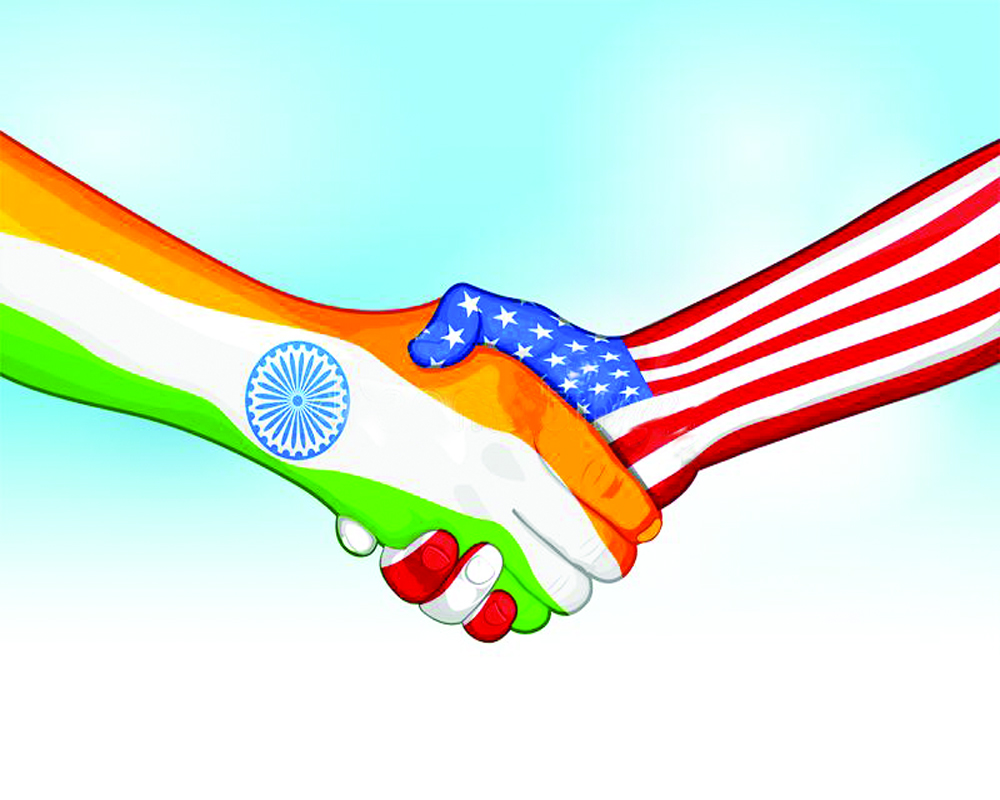The India-EU summit has aimed to address contiguity issues among the member nations
Amid the Coronavirus pandemic, the recent virtual summit between India and the European Union (EU) has provided a huge platform for negotiations in trade, economic partnership and issues related to investment protection, bringing about contiguity among member countries. There are also subtle efforts to establish joint collaborations in Asia, Pacific and African regions. This certainly exhibits high level insight and understanding of both sides. It also points to the vision leaders need to acclimatise to a changed world order necessitated by the current Covid-19 pandemic. Prime Minister Narendra Modi, EU President Ursula Von Der Leyen and President of European Council Charles Michel displayed foresight for creating channels of negotiations for trade and global security and a fresh pathway towards inclusive democratisation of world politics. The summit spells out a prototype for the world community handling bilateral and multi-lateral ties through cooperation rather than confrontation. The pandemic has reinforced the need for the member countries to trust one another and bury their differences. The key issue is to bring as many countries to the negotiating table as possible for, in the context of tackling the pandemic, relaxing vaccines related Trade-Related Aspects of Intellectual Property Rights (Trips) to help save maximum lives. The increasing support and agreement with regard to limiting climate change issues and opening up gateways for renewable energy and development in technological knowhow along with channelising the sources of power generation and creating a mechanism to withstand any sudden threat posed by China’s BRI (Belt and Road Initiatives) augur well for peace and prosperity of all member countries. The 2019 Japan EU deal was an effort in this direction. India and the EU have shared a positive relationship, with their trade share having crossed a decent landmark during last five years, much more than expected. During the last few years, there have been closer ties with Germany, Italy and The Netherlands, them being the biggest importers from India while Germany, France and Belgium being the largest exporters of goods.
The recent efforts at the summit would further boost and cement their ties and create a genuine environment for stabilizing economic growth (along with ensuring free flow of goods and services) strategic security, prosperity, stability and combating sudden challenges arising due to climate change. Further, help to India from EU’s Civil Protection System during the second surge of Covid-19will open avenues for closer integration.
Foreign relations operate with the help of efficient diplomatic system and diplomacy is all about right gestures and cooperation and coordination at the time of crisis. The Prime Ministers of Belgium and Spain and the French President appreciating India’s efforts to combat the pandemic can only lead to further cooperation. There is, however, no lack of unanimity with regard to nuclear energy, sustainable development and environmental issues. Further negotiations may lead to creation of a strategic mechanism to provide a shield against terrorism, international crime, drug dealing, smuggling and cyber threat unleashed by the non-state actors. This may also accelerate maritime friendly ties and bolster up security around Indian Ocean and Indo-Pacific areas which have lately become areas of concern.
These are changing times and many changes have occurred in international relations recently. The India-EU summit outcome endorses the fact that sharing a common strategic vision and a combined approach to ensure mutual economic prosperity through a multi-layered and multi-lateral strategy is going to dominate the world order in the coming days. What is required is to develop a fresh perspective for a more matured reliance on international cooperation between nations to enunciate a new strategy of retaliation, threatening a severe response to any attempt of destabilising the order.There are areas where strong relations can generate development funds for integrated education, medicine, science, technology and biotechnology among various nations across the globe.
(The author is a Professor and an expert on strategic affairs. The views expressed are personal)


























